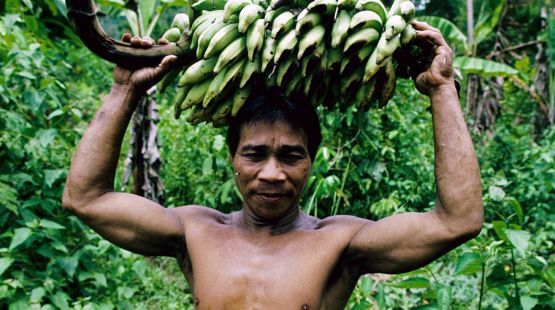
Amazon Conservation Team: Changing the landscape of conservation
The Amazon River basin encompasses more than 50% of the world’s remaining tropical forests and contains the richest biodiversity on Earth. However, 20% of these forests have been destroyed. Fortunately, hope lies in the 25% of the Amazon where indigenous groups have been superb stewards of the forests for millennia. ACT partners with indigenous people to conserve biodiversity, improve health, and strengthen traditional cultures in Amazonia. Since 1996, ACT has successfully built trusting partnerships with indigenous peoples – developing and implementing a comprehensive methodology that enables them to combine their traditional knowledge with modern technology and skills. To date, ACT has helped over 30 tribes map and lay the essential groundwork for the protection of over 70 million acres of ancestral rainforest.
Impact
To date, ACT has helped over 30 tribes map and lay the essential groundwork for the protection of over 70 million acres of ancestral rainforest. Through innovative projects, ACT helps indigenous communities find solutions to climate change, improve education, and build sustainable local economies while keeping communities culturally strong.
Beneficiaries
ACT has worked with more than 30 indigenous tribes, including the Inga, Siona, Kofán, Kamsá, and Coreguaje of Colombia; the Trio and Wayana communities of Suriname; and the Suruí, Waurá, Wai-Wai, Kaxuyana, Kamayurá and Yawalapití tribes of Brazil. In most cases, contact with Western society has greatly challenged indigenous peoples and their lands. All have had their territories reduced, their culture eroded, and their forests invaded by hunters, miners, farmers, and loggers. Moreover, modern land management requires modern skills, and many indigenous groups lack these skills as well as consistent, long-term financing options to conserve their forests.
Sustainability
ACT and its work have a lasting impact because we believe that real environmental protection does not exist without the indigenous communities who have an immediate stake in its conservation. Sustainability first begins with creating in our partners a sense of ownership of the project so that they are invested in its success. Secondly, we provide guidance over time for them to fully implement their own method of successful sustainability.
Innovation
In 1996, ACT redefined “effective” conservation as efficient, nimble, and on-the-ground, focusing on capacity building and equipping indigenous communities with the skills and tools necessary to control their destinies by directly participating in the conservation of their lands and cultures. When ACT was founded to work in partnership with indigenous tribes, conservation meant buying land, not building and maintaining trusted relationships with local communities. ACT’s model of conservation is now mirrored by other organizations, setting ACT apart as a pioneer in capacity building among local populations.
Scalability
It is through trusted and longstanding relationships with indigenous people that ACT has garnered recognition and credibility among local populations, governments and other NGOs. ACT’s approach to conservation begins with the communities and addresses the needs that they determine are priorities. In most cases, indigenous communities have sought out ACT’s assistance after witnessing projects implemented by neighboring tribes, scaling our conservation efforts and trust throughout entire regions of the Amazon. As a result, indigenous communities are sharing experiences locally, nationally and internationally. For example, in 2009 ACT teamed with the Jane Goodall Institute and Google Earth Outreach to create a virtual tour of communities in Brazil and Tanzania using GIS technology to fight deforestation. The tour was presented by ACT and JGI at the United Nations Framework Convention on Climate Change in Copenhagen.
Source of funding
As an NGO, ACT relies on the short and long-term contributions of individual, foundation, corporate and government funders to carry out its vision and mission. Additionally, ACT seeks to build and strengthen an endowment fund for organizational long-term financial stability, while also helping to increase the economic opportunities of its indigenous partners through sustainable income generation projects.